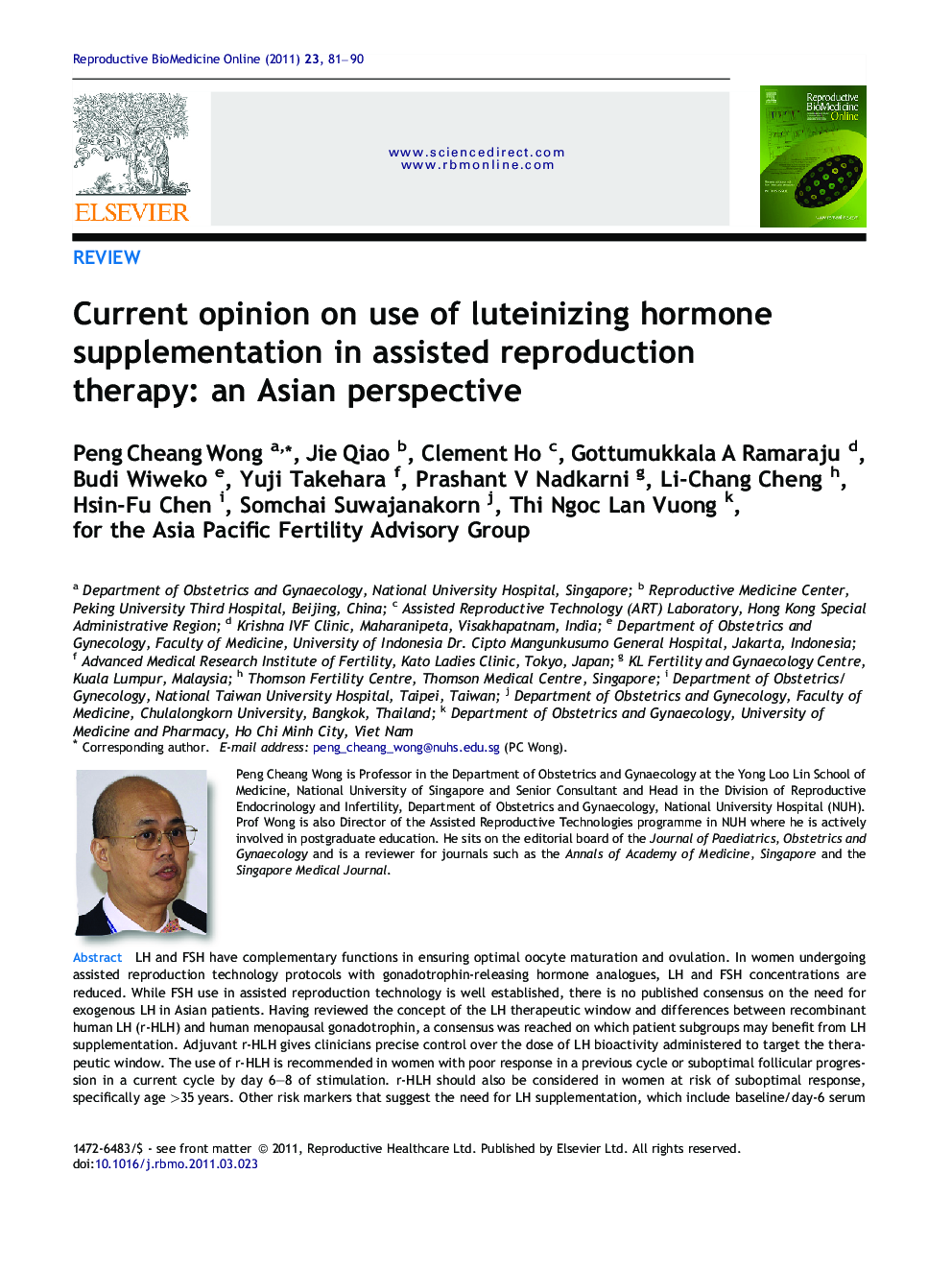| کد مقاله | کد نشریه | سال انتشار | مقاله انگلیسی | نسخه تمام متن |
|---|---|---|---|---|
| 3971478 | 1256766 | 2011 | 10 صفحه PDF | دانلود رایگان |

LH and FSH have complementary functions in ensuring optimal oocyte maturation and ovulation. In women undergoing assisted reproduction technology protocols with gonadotrophin-releasing hormone analogues, LH and FSH concentrations are reduced. While FSH use in assisted reproduction technology is well established, there is no published consensus on the need for exogenous LH in Asian patients. Having reviewed the concept of the LH therapeutic window and differences between recombinant human LH (r-HLH) and human menopausal gonadotrophin, a consensus was reached on which patient subgroups may benefit from LH supplementation. Adjuvant r-HLH gives clinicians precise control over the dose of LH bioactivity administered to target the therapeutic window. The use of r-HLH is recommended in women with poor response in a previous cycle or suboptimal follicular progression in a current cycle by day 6–8 of stimulation. r-HLH should also be considered in women at risk of suboptimal response, specifically age >35 years. Other risk markers that suggest the need for LH supplementation, which include baseline/day-6 serum LH and anti-Müllerian hormone concentrations, antral follicle count and LH polymorphisms require further research and verification. For measurement of LH response adequacy, the monitoring of follicular progression, oestradiol concentrations and endometrial thickness is recommended.For successful development of the ovum and subsequent ovulation, two key hormones namely luteinizing hormone (LH) and follicle-stimulating hormone (FSH) acting in concert is essential. For certain women undergoing fertility treatment using long agonist protocols, LH and FSH concentrations are reduced. Supplementing FSH involving long agonist protocols is already well defined. However, there is a lack of agreement on supplementation or even a need for LH particularly in Asian patients. This paper reviews the physiology of ovulation, examines the differences between various LH preparations and the potential benefit and role of LH supplementation. We also proposed the types of assisted reproduction patients likely to benefit from LH and those who are at risk of an inadequate response requiring additional LH. As the range of LH concentration required for optimal ovulation stimulation is narrow, precise control over the dose of LH administered is important. A recently available recombinant human LH (r-HLH) preparation that is structurally and functionally analogous to natural human LH gives physicians more precise control over the delivery of an adequate dose of LH. We recommend use of r-HLH in women with poor response from a previous stimulation cycle or having indicators showing inadequate response in a current treatment cycle. We also urge physicians to consider r-HLH in women with predictive markers for a poor response, namely age more than 35 and low initial and midcycle LH. Our recommendations pertain only to women undergoing fertility treatment using long agonist protocols.
Journal: Reproductive BioMedicine Online - Volume 23, Issue 1, July 2011, Pages 81–90